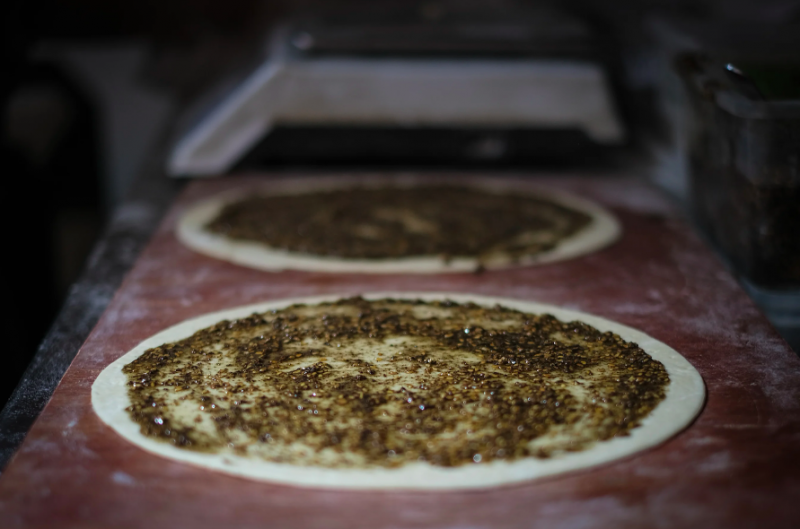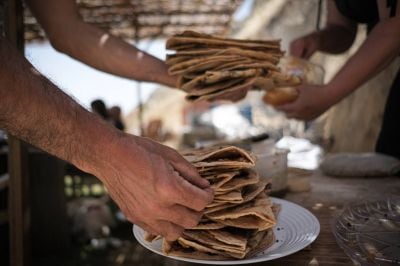
Manousheh ready for baking (Credit: Joao Sousa)
"Mabrouk to Lebanon and to all lovers of manousheh," said Sahar Baassiri, the Lebanese ambassador to The United Nations Educational, Scientific and Cultural Organization (UNESCO) on X (formerly Twitter), celebrating the inclusion of the beloved Lebanese flatbread on UNESCO's list of intangible heritage traditions.
Along with the Palestinian dabke, the art of glass-blowing in Syria, Italian lyric opera and the practice of Iftar during Ramadan, the Lebanese favorite has just been added to the list of world heritage.
The Intergovernmental Committee for the Safeguarding of the Intangible Cultural Heritage has been meeting since Tuesday in Kasane, in the north of Botswana. From Tuesday to Friday, it is expected to approve the inclusion of 55 new items, presented as community traditions, explained the international organisation.
The official application submitted by the Lebanese commission to UNESCO, chaired by Baassiri, stated that "practices of making manousheh” are widespread “throughout Lebanese territory."
Underlining the heritage value of this food staple, the application added, “The rural and urban communities of the country make this kind of thyme flatbread, which is usually eaten at breakfast but is also served as an appetizer at lunchtime with an assortment of savoury pastries called mou’ajanat stuffed with cheese, meat or spinach. The Lebanese people in the diaspora, which extends to all corners of the globe, including North, Central and South America, Africa, Australia, Europe, and the Arab countries of the Gulf, also make and eat al-Man’ouché. Finally, the preparation of al Man’ouché is widespread in the Arab countries of the Mashrek and the Gulf. It is not unusual to find small bakeries named after the Lebanese Man’ouché, or the cedar tree, the emblematic tree of Lebanon, in reference to the identity of the owner or the quality of the thyme flatbread served there.”
This article was originally published in French in L’Orient-Le Jour.

